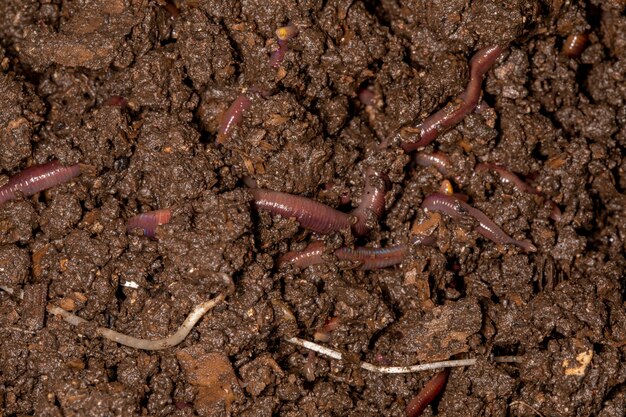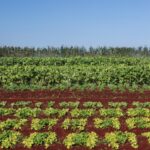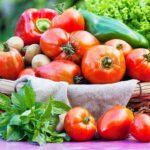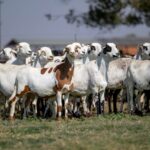As South African farmers face challenges like soil degradation, climate change, and the need for sustainable practices, vermiculture is emerging as a viable solution. Vermiculture, the cultivation of earthworms to produce nutrient-rich compost (vermicompost), offers a natural and effective way to enhance soil health. In this article, we will explore the benefits of vermiculture and how it can improve soil quality for South African farmers.
1. Understanding Vermiculture
Vermiculture involves raising earthworms, specifically species like Eisenia fetida (red wigglers), to break down organic matter and produce vermicompost. This compost is rich in essential nutrients, improves soil structure, and boosts the microbial activity that plants need to thrive.
2. Benefits of Vermiculture
a) Improved Soil Fertility
Vermicompost contains nutrients like nitrogen, phosphorus, and potassium, which are released slowly into the soil, making it highly effective as a natural fertilizer. For South African farmers working with nutrient-depleted soils, vermiculture can offer a sustainable alternative to chemical fertilizers, which can be costly and harmful to the environment over time.
b) Enhanced Soil Structure
The addition of vermicompost improves soil aeration and drainage. Earthworms also create channels in the soil, allowing water and air to penetrate deeper, reducing the risk of soil compaction. This is especially important in South Africa’s semi-arid regions where water retention is crucial.
c) Increased Microbial Activity
Vermiculture introduces beneficial microbes into the soil, which enhances the decomposition of organic matter and promotes healthier plant growth. These microbes also help in breaking down toxins and preventing soil diseases.
d) Reduction in Waste
South African farms produce a significant amount of organic waste, from crop residues to animal manure. Vermiculture provides a way to recycle this waste into valuable compost, reducing the environmental impact and promoting circular farming practices.
3. Starting Vermiculture on Your Farm
a) Selecting the Right Worms
Red wigglers (Eisenia fetida) are the most popular species for vermiculture because of their efficiency in breaking down organic matter. These worms thrive in environments rich in organic waste, making them perfect for converting farm waste into compost.
b) Building a Worm Bin
Farmers can create a worm bin or bed from simple materials like wood or plastic. Ensure the bin has proper drainage and is placed in a cool, shaded area to protect the worms from extreme temperatures, especially in regions like Limpopo or the Northern Cape where summer heat can be intense.
c) Feeding the Worms
Earthworms feed on organic waste such as vegetable scraps, farm crop residues, and animal manure. Avoid adding meat, dairy, or citrus, which can create unfavorable conditions for the worms. Regular feeding will ensure consistent vermicompost production.
d) Harvesting Vermicompost
Vermicompost can be harvested after 2-3 months, depending on the size of your worm bed and the amount of waste added. The compost should be dark, crumbly, and rich in texture. Apply it directly to crops as a soil amendment or use it to create compost tea for irrigation.
4. Integrating Vermiculture into South African Farming Practices
a) Use with Crop Rotation
For farmers practicing crop rotation, vermicompost can help restore soil nutrients after intensive planting seasons. Adding vermicompost between crop cycles ensures that the soil remains fertile and balanced.
b) Combining with Organic Farming
Farmers focused on organic farming can integrate vermiculture into their systems to boost productivity without the need for synthetic fertilizers. This not only improves crop yield but also meets the growing consumer demand for organic produce in South Africa.
c) Cost-Effective Soil Management
Vermiculture can reduce the reliance on costly chemical inputs, making it a cost-effective strategy for smallholder farmers. The production of vermicompost is relatively inexpensive, as the primary inputs (worms and organic waste) are readily available.
5. Environmental Benefits
a) Combatting Soil Erosion
In areas prone to erosion, such as the Eastern Cape, the improved structure and organic matter content of soils enriched with vermicompost can reduce erosion risks by promoting better plant growth and stronger root systems.
b) Reducing Carbon Footprint
By reducing the need for chemical fertilizers and recycling organic waste, vermiculture helps decrease greenhouse gas emissions from farming activities. This supports South Africa’s broader goals for environmental sustainability.
6. Challenges and Considerations
a) Temperature and Moisture Control
In some regions, managing the temperature and moisture levels in the worm beds may be challenging. South African farmers should monitor these conditions closely, especially during extreme weather, to ensure the worms remain healthy and productive.
b) Initial Setup Costs
Although vermiculture is cost-effective in the long run, there may be some initial investment required for building worm bins, purchasing starter worms, and setting up the system. However, this investment is minimal compared to the long-term benefits.
c) Pest Management
Like any composting system, vermiculture can attract pests if not properly managed. Ensure that worm beds are well-covered and kept free from non-organic waste to minimize the risk of pests and odors.
Vermiculture offers South African farmers a sustainable and eco-friendly solution to improving soil health and fertility. By integrating worms into the farming process, farmers can enhance their crop yields, reduce waste, and contribute to a healthier environment. With proper management and care, vermiculture can be a key tool in ensuring the long-term productivity and sustainability of South African farms. Whether you’re a smallholder or a large-scale producer, now is the perfect time to explore vermiculture as part of your agricultural strategy.
Join 'Farmers Mag' WhatsApp Channel
Get the latest Farming news and tips delivered straight to your WhatsApp
CLICK HERE TO JOIN






